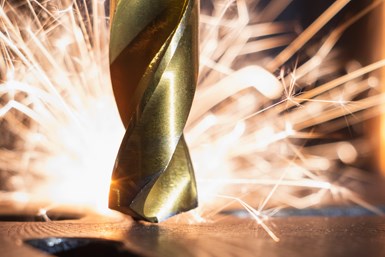Ceratizit Standard Will Aim to Reduce Carbon Footprint
Ceratizit says the new standard will offer an increase in transparency with carbon footprint at a product level.
Share





Ceratizit will introduce the first standard for calculating and classifying the CO2 footprint of carbide products at EMO Hanover 2023. In combination with a scoring and classification system, the Luxembourg-based carbide specialist says it will offer an increase in transparency with carbon footprint at a product level and encourages other players in the carbide industry to take part.
“Our goal is to establish a common standard on the market for calculating and classifying the carbon footprint of cutting tools, hard material solutions and tungsten carbide powders. In this way, we will be able to provide customers the carbon footprint transparency they require,” explains executive board spokesman Andreas Lackner.
The alphabetic product carbon footprint (PCF) classification can be added to any product sheet or sales document. Over the coming months, Ceratizit will roll out the PCF classification across its product portfolio, introduce related products and services and encourage customers, partners and other industrial players to adopt the newly developed standard.
Serving as the basis for the PCF calculation is the respective corporate carbon footprint (CCF, i.e., the CO2 footprint of the entire company). In accordance with the ISO 14067:2018 standard, the PCF includes not only the emissions attributable to Scopes 1 and 2, but also the upstream part of Scope 3 emissions, which can be allocated to specific products (purchased goods and services, upstream transportation and distribution, as well as waste generated from operations). To add extra emphasis on customer needs, Ceratizit uses the cradle-to-gate approach and excludes downstream emissions.
Due to a fully integrated supply chain for raw materials, Ceratizit is able to determine precise data for the PCF. Lackner says, “Our ambition is to lead the carbide industry into a sustainable future. However, it is up to customers to decide whether to opt for a standard product with detailed PCF transparency or a solution with a particularly low CO2 footprint. With our standard, we offer the basis for making informed decisions with ease.”

























